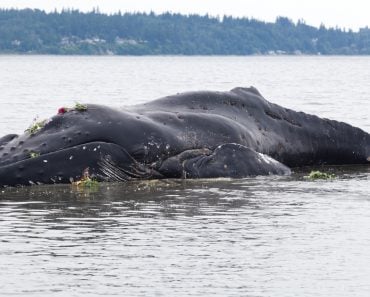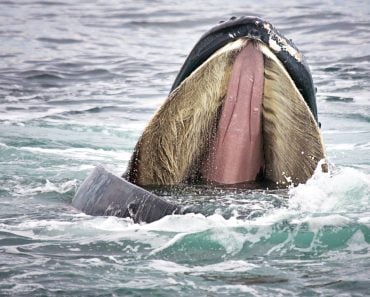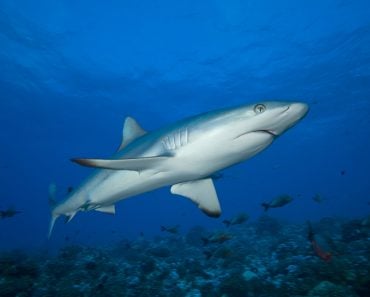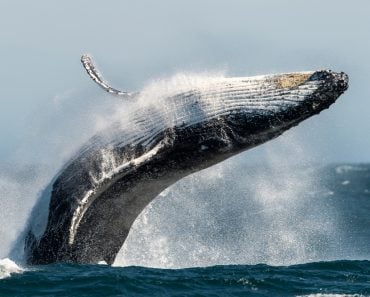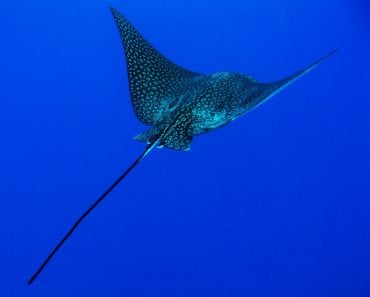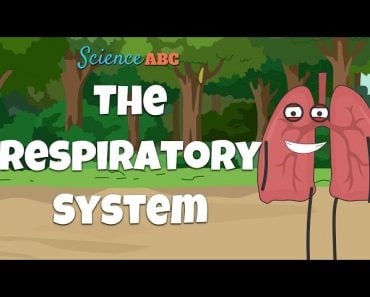Table of Contents (click to expand)
Whales and dolphins can hold their breath for so long underwater because they have efficient respiratory systems, they can conserve energy underwater by purposely slowing their heart rate, constructing select arteries and limiting blood supply to only a few organs, and they have a protein in their muscles called myoglobin that stores oxygen.
Here’s a fun fact: whales and dolphins are not really fish.
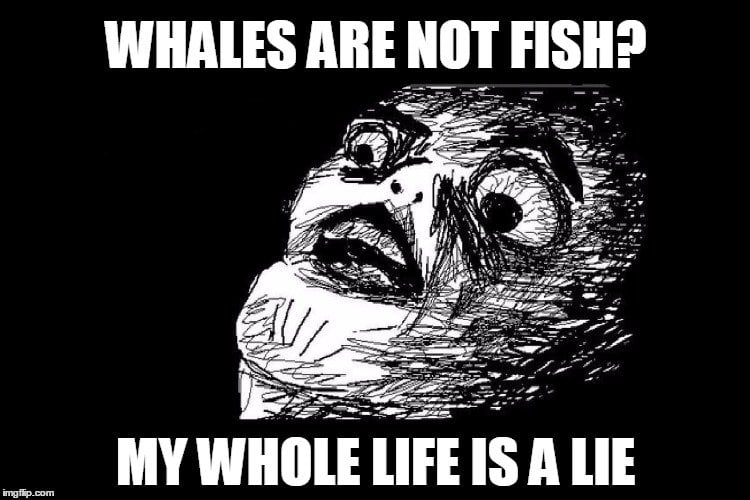
This might be one of those truths of the world that make you doubt your existence, but it’s absolutely correct. Whales and dolphins are not fish; they are mammals, just like us humans!
This has a few implications that make them stand out from most members of their aquatic neighborhood. First, whales give birth to their young ones (as opposed to laying eggs) and feed them milk. They’re warm-blooded too, and tend to have fur on their bodies (although it’s very sparse). However, the most interesting distinction between whales and other fish is that the former don’t have gills. This means that they cannot breathe the oxygen dissolved in water and therefore have to come to the surface every time they want to breathe air.
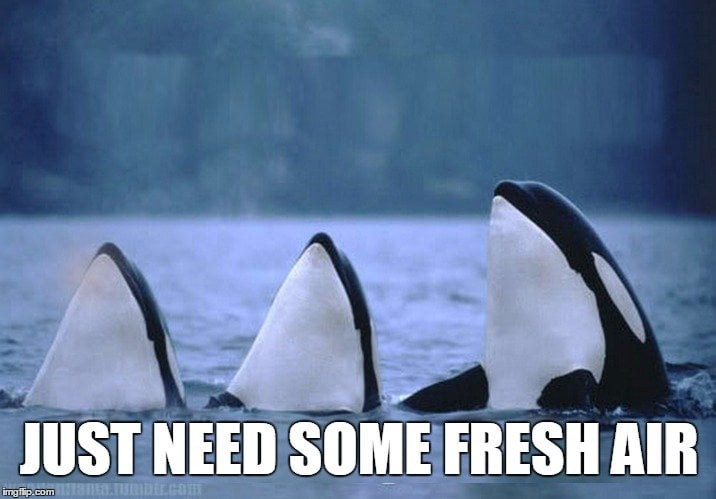
The question is – how do whales (and other mammals living underwater) manage to hold their breath for so long before taking another breath?
Short answer: Whales’ lungs make the most of each breath, and store excess oxygen in a special protein found in muscles called myoglobin. Also, they conserve energy underwater by purposely slowing their heart rate, constructing select arteries and limiting blood supply to only a few organs.
Recommended Video for you:
The Evolution Of Whales
Whales and dolphins, along with certain other marine animals, like porpoises, walruses and seals, belong to a special group of mammals called cetaceans. It might surprise you to note that millions of years ago, the evolutionary ancestors of whales walked on the Earth, just as we do today. However, over the years, they gradually migrated to the seas, took to the ‘watery’ lifestyle and stopped spending time on land altogether. This is why these marine creatures (whales, dolphins, etc.) seem like fish, but don’t actually deserve that classification.
Whales And Dolphins Don’t Have Gills
One of the first things you probably learned about fish in high school was that they have special organs called gills that can extract dissolved oxygen from water and enable them to breathe underwater.

In contrast, dolphins and whales have a set of lungs like us, which means that they cannot breathe underwater.
Owing to this biological necessity, such species have to surface frequently to get some fresh air.
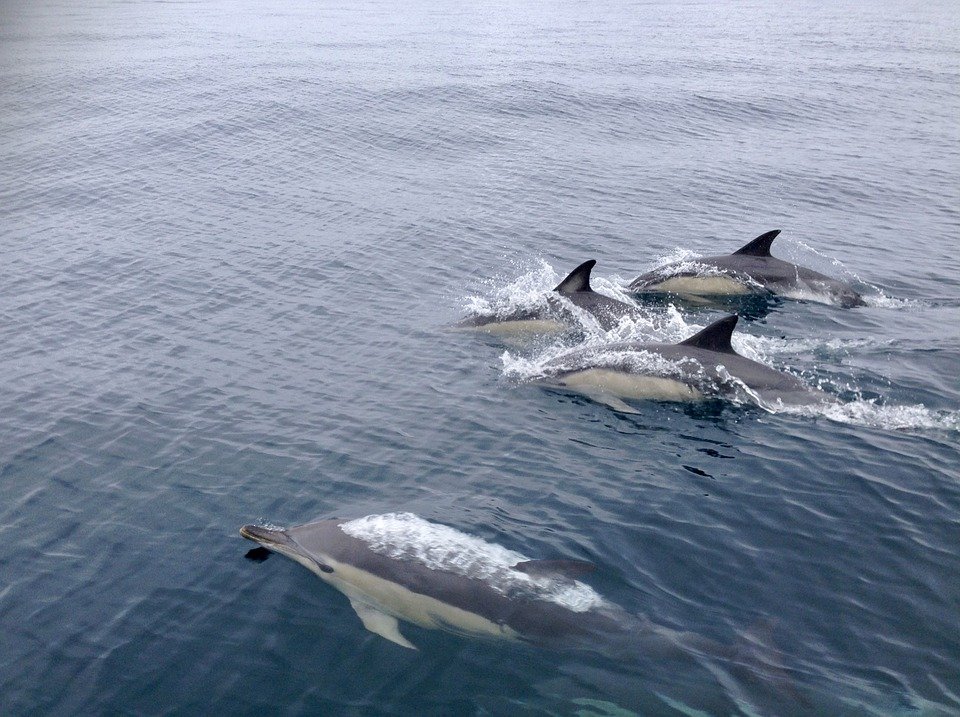
While dolphins usually surface every few minutes to get fresh oxygen, whales are far better when it comes to holding their breath underwater, and are known to hold their breath for as long as 2 hours! (Source)
How Do Whales Hold Their Breath Underwater For So Long?
Efficient Respiratory System
There are a few things that play in whales’ favor when it comes to holding their breath for so long. For starters, whales have a very efficient respiratory system, which helps them make the most of a single breath. To put this in perspective, consider this – humans breathe around 12-20 times per minute when resting, but only absorb 5% of the oxygen in a single breath (Source). In contrast, a whale can absorb as much as 90% of the oxygen in each breath, thanks to its highly efficient respiratory system. (Source). In this way, a whale acquires much more oxygen than a human in a single breath to start with.
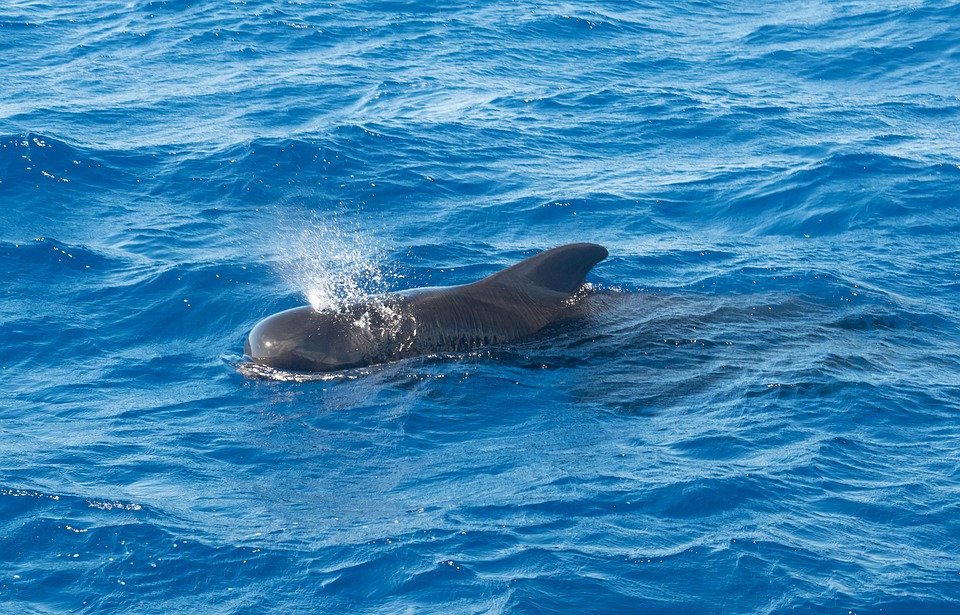
Conservation Of Energy
While underwater, whales conserve as much energy as they can by slowing their heart rate and limiting blood supply to only a few select organs, such as the brain, heart and muscles (without affecting their blood pressure) to exploit the full potential of a single breath.
Myoglobin: A Biological Advantage
The biggest advantage for whales is myoglobin, a protein present in the muscles of most mammals. Myoglobin’s primary job is to bind to oxygen molecules, or more simply, store excess oxygen. Therefore, when you hold your breath even for a little while, it’s myoglobin that provides oxygen to your body.
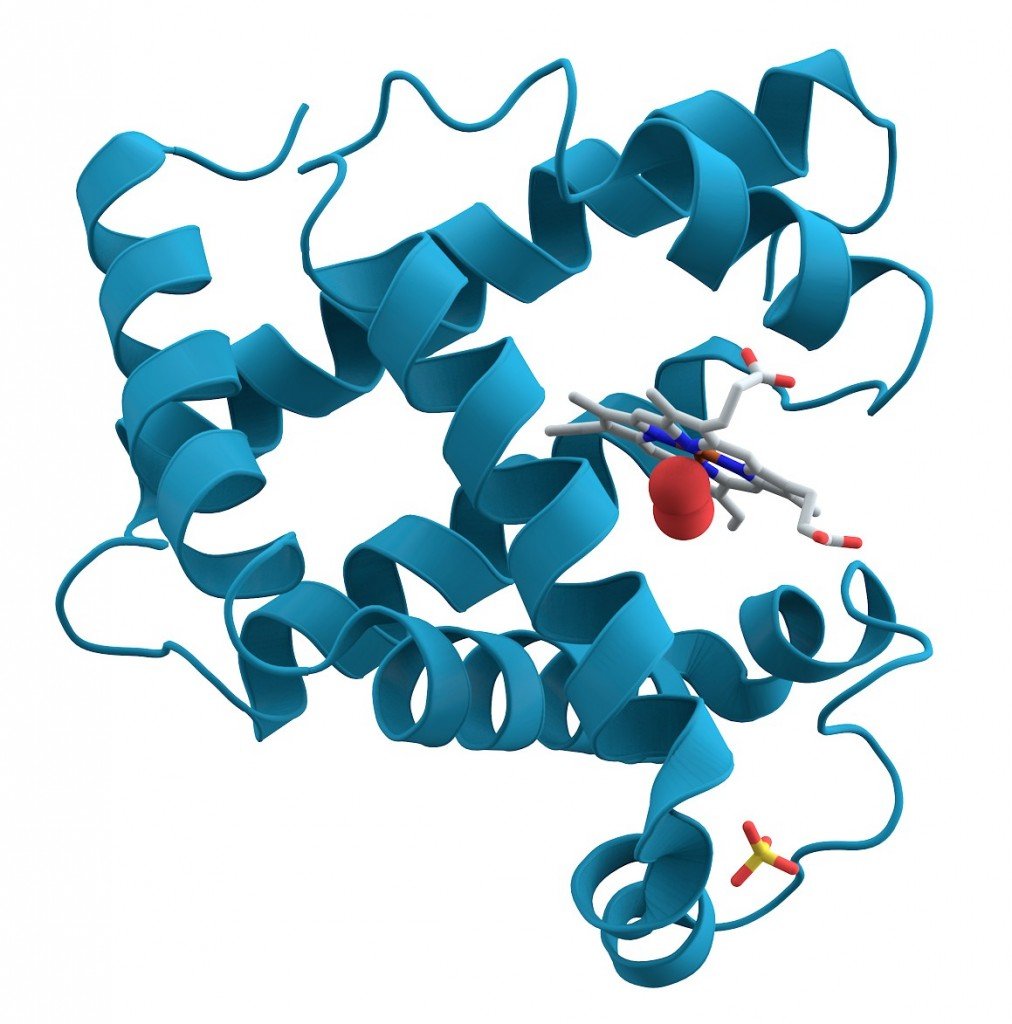
Since aquatic mammals spend significantly more time underwater, their muscles naturally have more myoglobin than land-based mammals like us. However, even amongst marine mammals, whales have a special spot from a myoglobin standpoint. In a study published in 2013, it was found that whales have positively-charged myoglobin proteins in their muscles.
This property is quite helpful in packing more myoglobin into their muscles than other mammals. Myoglobin proteins generally tend to clump together, but when they are of the same charge, they repel each other (think about two magnets repelling each other) and spread out, leading to an increase in their efficiency. This, in turn, enables a ‘whale breath’ to last far longer than other mammals.
In a nutshell, whales can decide/control when they want to take a breath and hold it for almost 2 hours underwater without any harmful consequences! Seriously whales, you got some tricks up your… blowhole!
References (click to expand)
- Myoglobin - Wikipedia. Wikipedia
- M Ibarra. Why can't we hold our breath like the whales?. Cornell University
- Are dolphins fish? - NOAA's National Ocean Service. The National Ocean Service
- How come whales can hold their breath longer than most .... The University of California, Santa Barbara
- How Diving Mammals Stay Underwater for So Long - news.nationalgeographic.com
- Owens, B. (2013, June 13). Making the most of muscle oxygen. Nature. Springer Science and Business Media LLC.
- Mirceta, S., Signore, A. V., Burns, J. M., Cossins, A. R., Campbell, K. L., & Berenbrink, M. (2013, June 14). Evolution of Mammalian Diving Capacity Traced by Myoglobin Net Surface Charge. Science. American Association for the Advancement of Science (AAAS).


